Dive Into Ainu Culture
The Ainu are the indigenous inhabitants of Japan’s northern-most island of Hokkaido. The Ainu also populated the Kuril and Sakhalin islands. Hokkaido, called Ezo until 1869, was acquired by Japan during the Tokugawa Shogunate (1603–1868) purposed to be a buffer for protection from Russia.
By SoraNews24Marriage
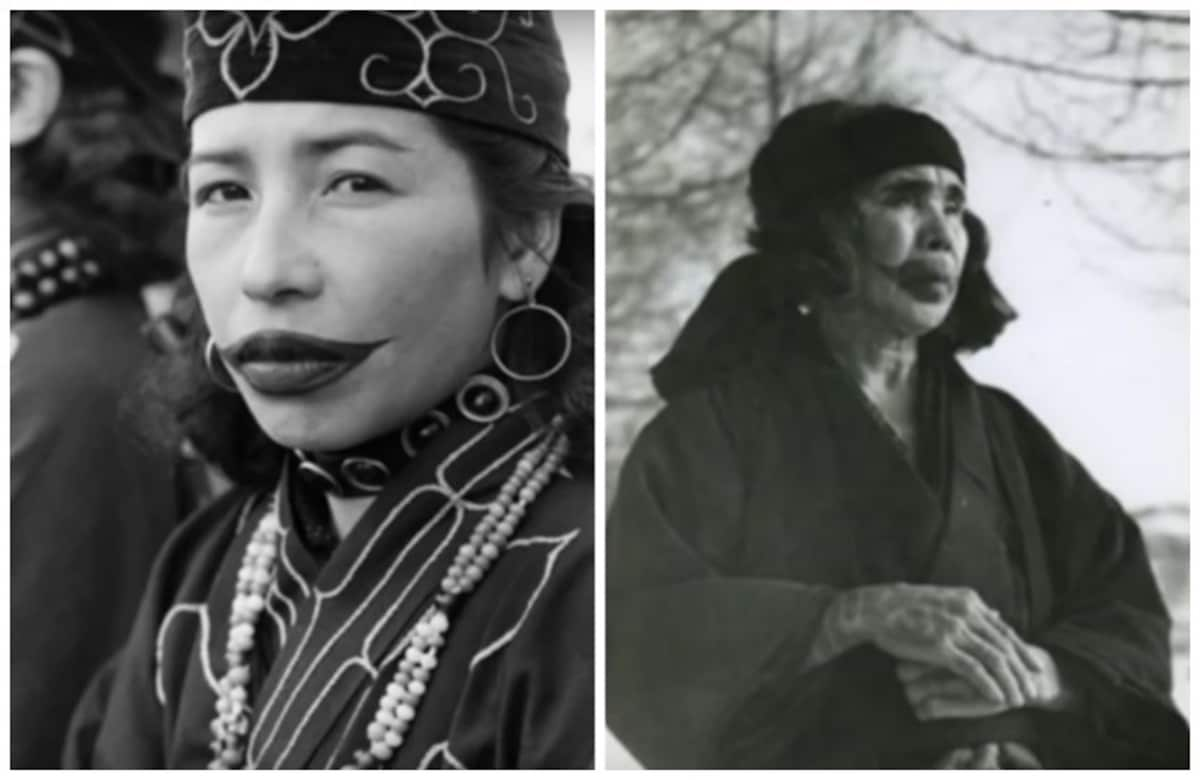
https://www.youtube.com/watch?v=xc46pfG0aqU
From the age of 12, women started a long process of tattooing, marking the lips, hands and arms over a three-year period. When the process was complete, usually around age 15 or 16, she was eligible for marriage. Tattooing was a woman’s domain and only women tattooed each other. The Japanese government banned tattooing in the Edo Period (1603-1868) for being cruel and, presumably, because tattooing was associated with felonious activity in Japan.
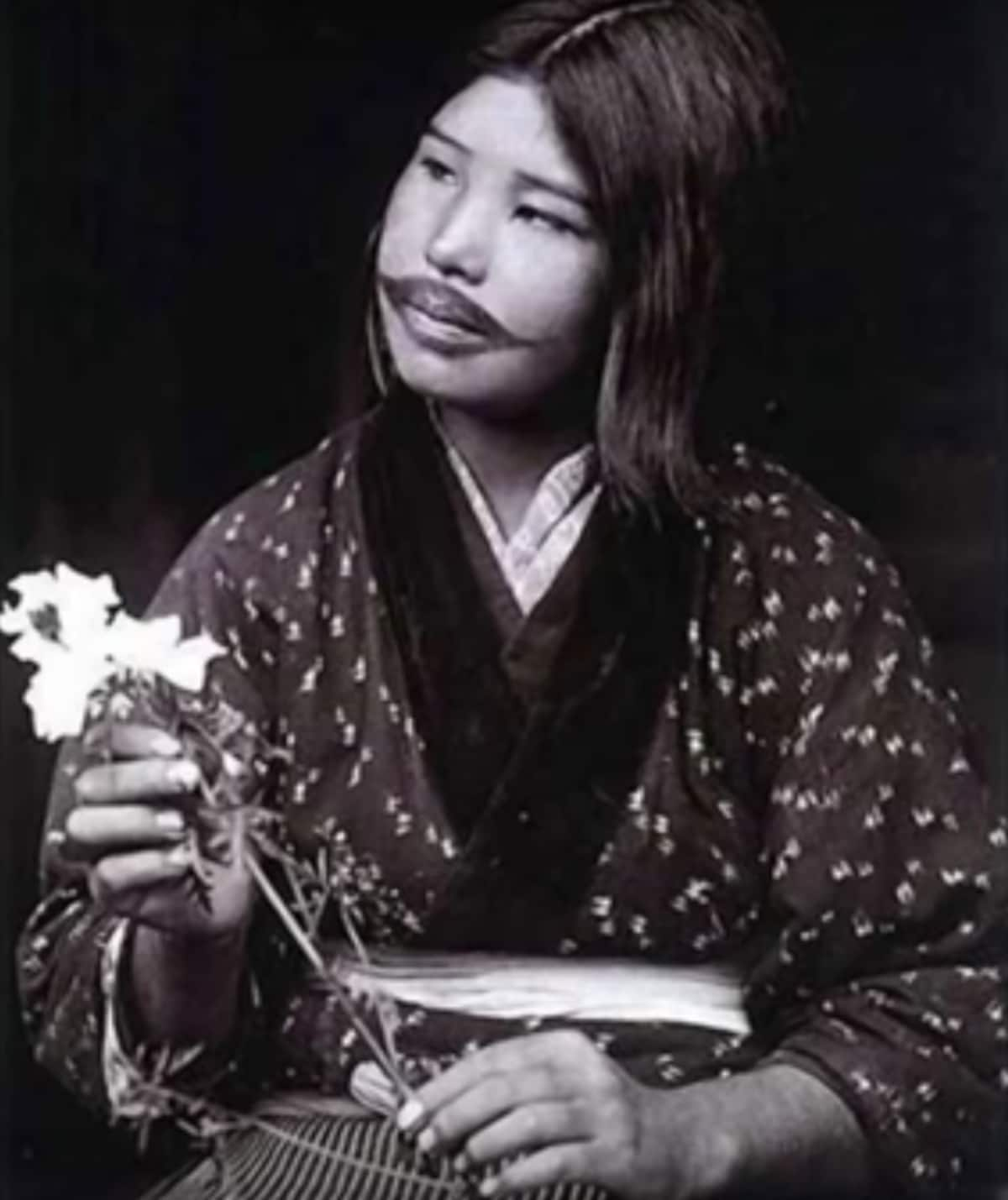
https://www.youtube.com/watch?v=xc46pfG0aqU
Some marriages were arranged by parents whereas others were mutual consent. When a man wanted to propose to a woman, he went to her house where a simple procedure was conducted to decide whether they’d be betrothed. The girl would serve her suitor a bowl of rice, and he would eat half the rice and hand the bowl back to her. If she took kindly to this gesture and finished the other half, that was taken as a sign of acceptance of the proposal. However, if she put the rice down next to her, ignoring it, that was a rejection.
At the wedding ceremony, the couple would repeat the rice bowl ritual with both parties finishing their half.
When children came along, babies were given nicknames until around age two or three, after which they were bestowed a permanent name.
Traditional Dress
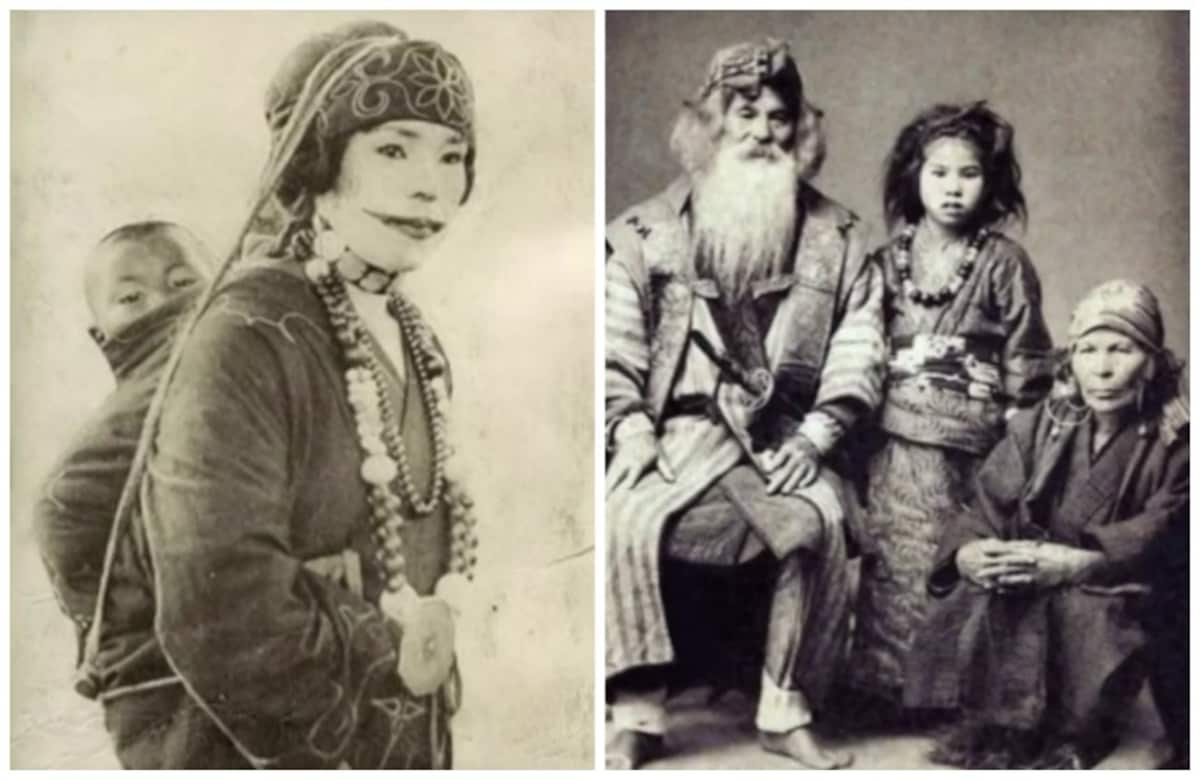
https://www.youtube.com/watch?v=xc46pfG0aqU
The original Ainu clothing was made from bird skin and feathers, as well as the hides of bear, deer, fox, seal, dog and others. Some clothing was even fashioned from “fishskin” of salmon and trout. Other attire was crafted from plant material, such as wild rye and bark from Elm trees (called attush.) The Sakhalin Ainu wore white clothes made from the fiber of the Staff tree, for example. For formal occasions these plain clothes were adorned with applique and embroidery. As time went on and cotton was traded from mainland Japan, the applique and embroidery became more elaborate.
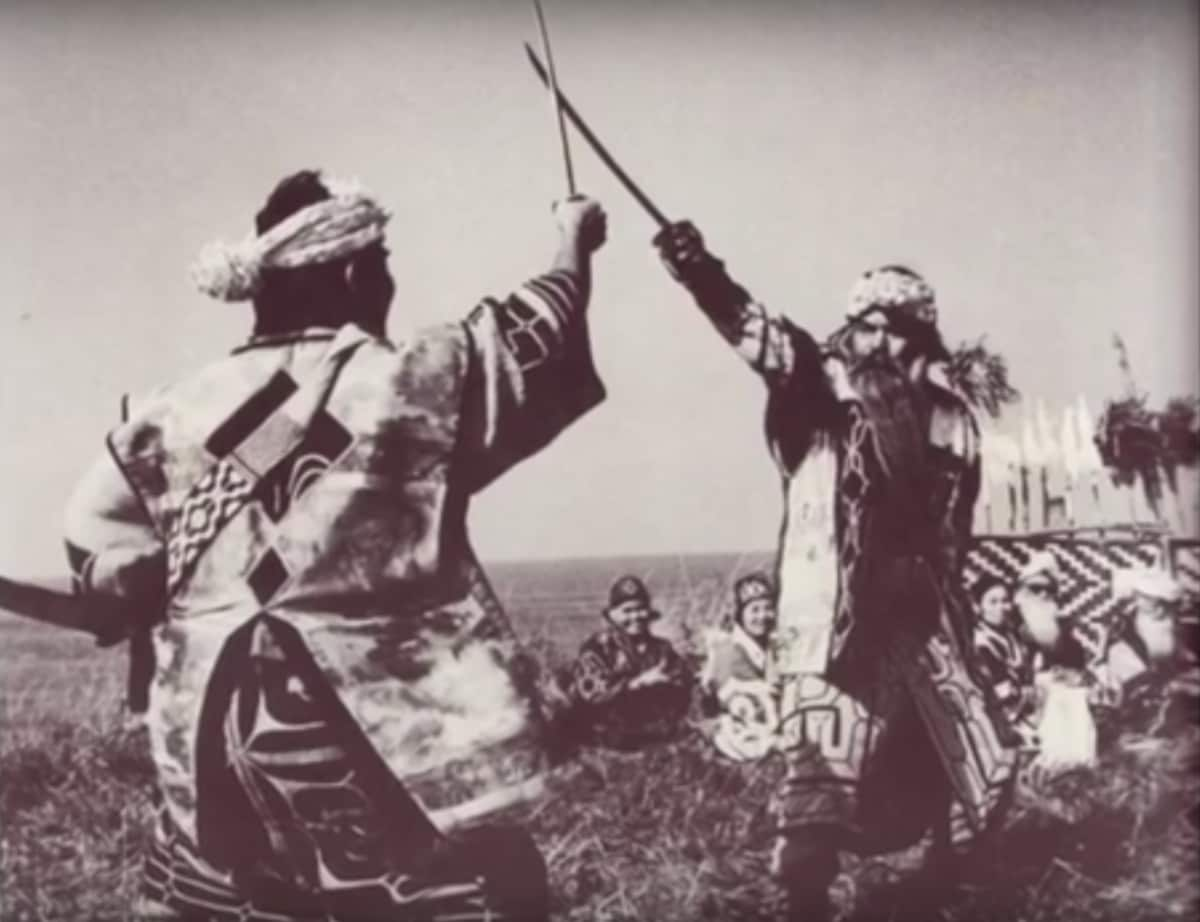
https://www.youtube.com/channel/UCju9qpS3vbicdlrKPmIwuvw
Men often had beards and carried short swords which they draped over one shoulder.
Food
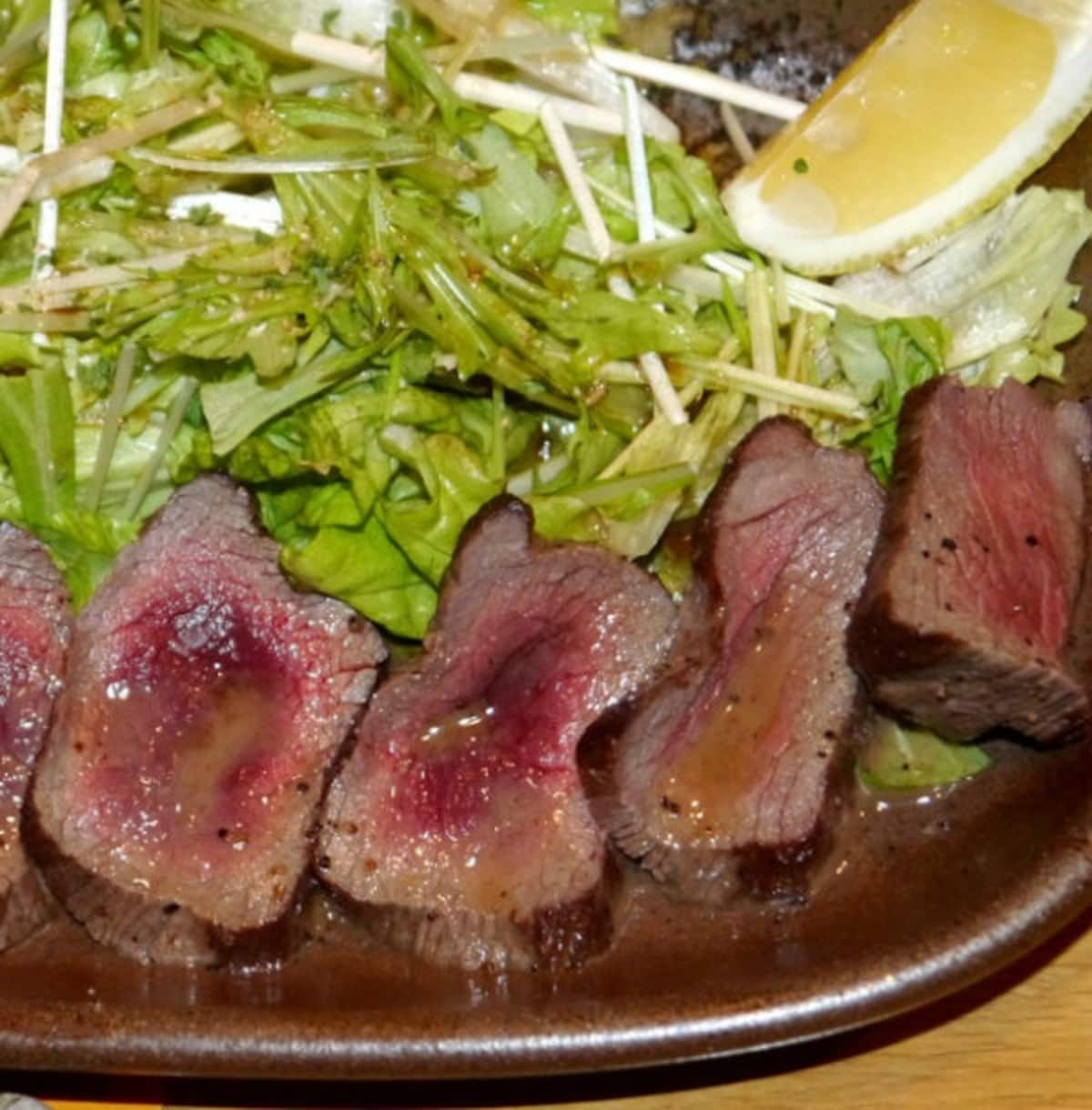
http://en.rocketnews24.com/2013/02/26/get-your-delicious-indigenous-grub-on-at-tokyos-only-ainu-restaurant/
In the summers the Ainu used wooden canoes to fish for salmon and sea urchins. Salmon and trout were killed individually with spears, through basket traps or by damming rivers. In the ocean they hunted swordfish, tuna, sunfish, seals, dolphins and whales. When the harsh winters were upon them, they turned to hunting bear, deer and other animals which they boiled, dried and smoked. Smoking the meat was done indoors over a fire, after which the meat was wrapped in birch bark and stored.
If you're in Tokyo, you can try Ainu food such as rataskep (a stewed dish with sauces), ohaw (soup) and mefun (salted fish entrails) at HaruKor, a restaurant in the Shinjuku district.
Language
https://www.youtube.com/watch?v=xc46pfG0aqU
The Ainu have their own language, but not a writing system, resulting in a strong oral tradition of passing down stories and rules over generations. Many of Hokkaido’s place names are derived from Ainu language, such as Sapporo (dry, large river), Muroran (small slope), and Lake Toya (pond shore).
We’ll leave you now with this short video, which takes a nostalgic look at some of the Ainu’s cultural traditions through 100-year-old photos plus video footage. Enjoy!
Related Stories:
Vanishing Japan: Five things to see before they disappear completely
Awash in a sea of sound: The ambient electronic music of Sapporo artist Unii
Irezumi: Getting tattooed in Japan




